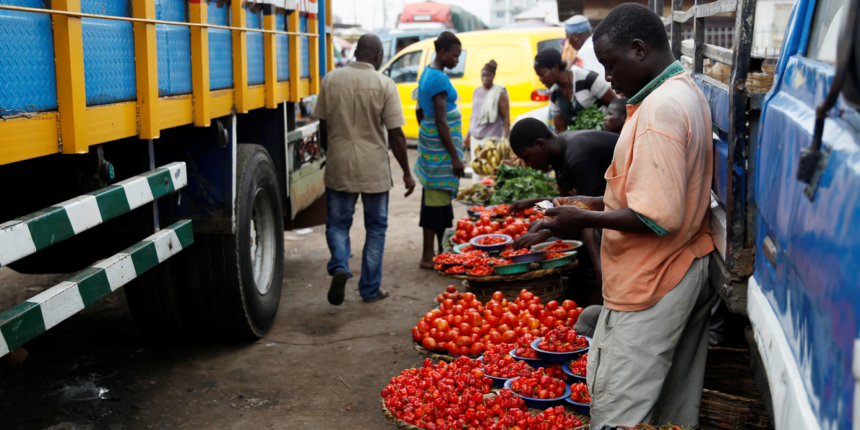Inflation in Nigeria has surged to a 28-high in February after the naira weakened again.
Consumer prices rose an annual 31.7% as compared to January’s 29.9%, the National Bureau of Statistics said Friday.
To combat inflation and support the currency, the central bank will likely raise interest rates again at its March 25-26 monetary policy committee meeting. Last month, the MPC at its first meeting since July increased the minimum cash reserve ratio for banks to 45% from 32.5% and lifted borrowing costs by 400 basis points to 22.75% to help curb naira liquidity and contain pricing pressures
Africa’s largest oil producer devalued the naira by more than a third against the dollar at the end of January, seven months after previously allowing it to depreciate, as it moves toward a fully floated currency and to close the gap with the parallel-market rate to woo investors.
The currency’s decline has had a marked effect on inflation because the nation imports a quarter of its food and nearly all of the fuel consumed domestically.
Annual food inflation quickened to 37.9% in February from 35.4% a month earlier, while core price growth — which excludes farm produce and energy costs — accelerated to 25.1% from 23.6%.
Price spikes have fanned protests in major cities and soldiers now stand guard to prevent grain warehouses from being ransacked by desperate citizens.









